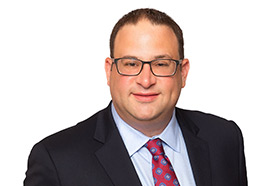For healthcare organizations looking to be active in the mergers and acquisitions marketplace, the importance of focusing on the right priorities cannot be overstated.
Although transaction activity in healthcare has flattened slightly in the past year due primarily to higher interest rates, appeal is still high, and it is expected that activity will pick up as the year progresses. Certainly, there are many signs that robust M&A activity is ahead.
7:29 | Transcript (PDF - 95.0KB)
“We expect to see a greater number of deals close compared to last year, picking up in the second quarter and accelerating throughout the year. The number of quality assets in the market appears to be very attractive to both strategic and financial buyers. It will be important to focus on how to optimize your integration plan and results after the transaction is complete,” said Grant Thornton Principal, National Healthcare Growth Leader Claudia Douglass. “Companies that are effective in integration begin executing their plan in the diligence phase.”
Grant Thornton Principal, National Healthcare Delivery Leader David Tyler said, "Ensuring organizational preparedness for business transaction possibilities requires a focus on five major areas." These five areas include:
- Overall performance of the business to ensure sustainable profitability
- Administrative functions, such as human resources and finances
- Physician relations and other workforce issues
- Clinical and information technology
- Revenue cycle management
Ensuring a quality RCM function requires constant monitoring from team members assigned to it and forming priorities that make sure the beginning-to-end experience for an organization’s healthcare consumers minimizes frustrations, delays and inaccuracies to the greatest extent possible.
In the video, Grant Thornton’s Healthcare Transaction Advisory Partner Lance Beder, Healthcare Transaction Advisory Partner Glenn Barenbaum and Healthcare Advisory Partner Adrianne Boylen discuss a particular pain point of the M&A process – revenue cycle management (RCM). The three review what healthcare organizations can do to optimize RCM functioning during the diligence process and post transaction.
Beder introduces the concept of post-transaction improvement analysis in RCM systems, with Barenbaum following how to analyze these metrics in taking into account the primary goal of maximizing patient outcomes, not organizational profit. Boylen reviews how difficult choices on whether to insource or outsource particular operations can influence outcomes, an important factor when companies combine.
Making sure all five areas of focus for transactional preparedness are being properly addressed can be a major undertaking, and the process often can benefit from insights from a third-party practitioner familiar with the M&A marketplace.
Grant Thornton Healthcare
Contacts:



Partner, Technology Modernization
Grant Thornton Advisors LLC
David has 30 years of experience primarily in the health system and health plan areas.
Atlanta, Georgia
Industries
- Healthcare
Service Experience
- Advisory Services



Partner, Transaction Advisory Services, Diligence Healthcare
Grant Thornton Advisors LLC
Lance is a Partner in our Transaction Services practice and is the health care transaction services leader with over 20 years of experience in restructuring, M&A, audit and management consulting developed over several years within large professional service settings.
Stamford, Connecticut
Industries
- Healthcare
- Private Equity
Service Experience
- Audit & Assurance Services
- Transaction Advisory



Partner, Transaction Advisory Services, Diligence Healthcare
Grant Thornton Advisors LLC
Glenn is the Healthcare and Life Sciences Diligence Co-Leader of Grant Thornton’s Strategy & Transactions practice.
Philadelphia, Pennsylvania
Industries
- Healthcare
- Life Sciences
Service Experience
- Advisory Services



Partner, Business Consulting, Healthcare Advisory
Grant Thornton Advisors LLC
Adrianne is a seasoned executive in Grant Thornton LLP’s national Health Care Advisory Services Group and has 20 years of experience serving various health care organizations across finance and revenue cycle.
Los Angeles, California
Industries
- Healthcare
Service Experience
- Advisory Services
- Financial Modernization
- Business Consulting
Content disclaimer
This Grant Thornton Advisors LLC content provides information and comments on current issues and developments. It is not a comprehensive analysis of the subject matter covered. It is not, and should not be construed as, accounting, legal, tax, or professional advice provided by Grant Thornton Advisors LLC. All relevant facts and circumstances, including the pertinent authoritative literature, need to be considered to arrive at conclusions that comply with matters addressed in this content.
Grant Thornton Advisors LLC and its subsidiary entities are not licensed CPA firms.
For additional information on topics covered in this content, contact a Grant Thornton Advisors LLC professional.
More healthcare insights

No Results Found. Please search again using different keywords and/or filters.
Share with your network
Share